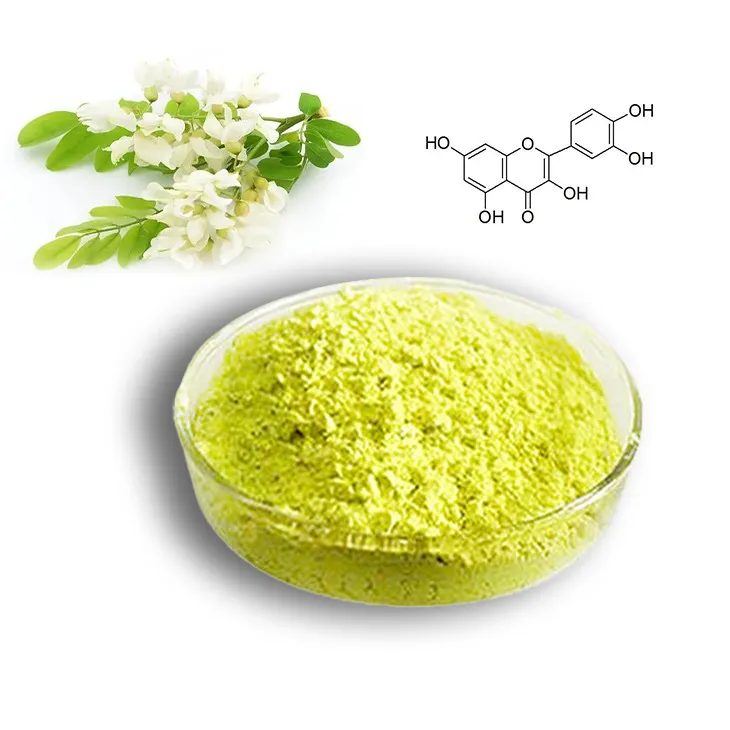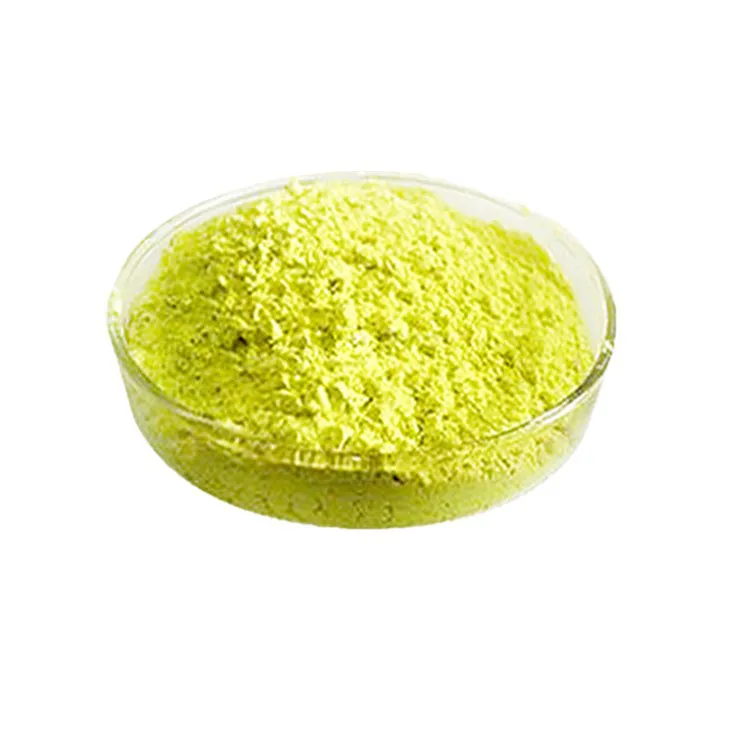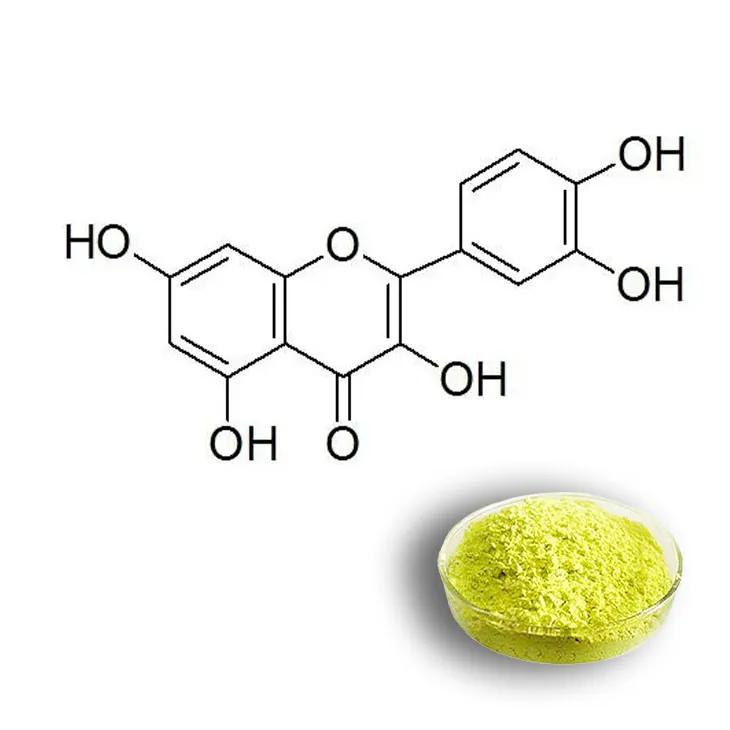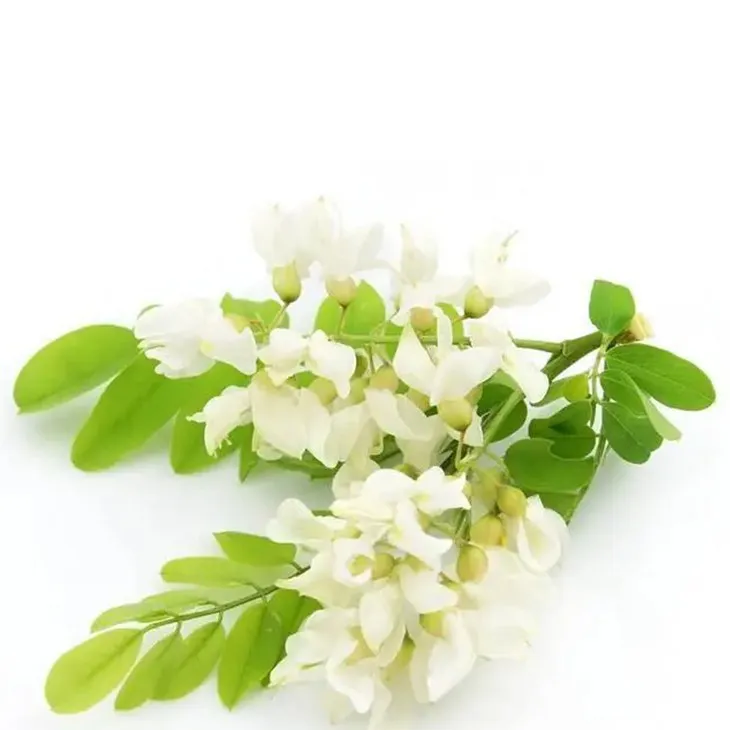- 0086-571-85302990
- sales@greenskybio.com
10 Kinds of Quercetin That Are Helpful for Improving Health.
2024-12-21

Introduction
Quercetin is a flavonoid that has been gaining increasing attention in the field of health and nutrition. It is found in various foods and plants and offers a wide range of potential health benefits. In this article, we will explore 10 different kinds of Quercetin and their roles in antioxidant protection, cardiovascular health, and overall well - being.

1. Quercetin from Onions
Onions are a common source of quercetin. The quercetin in onions is part of what gives them their characteristic flavor and health - promoting properties.
- Antioxidant Protection: It helps combat free radicals in the body. Free radicals are unstable molecules that can cause damage to cells, DNA, and proteins. By neutralizing these free radicals, quercetin from onions can reduce the risk of chronic diseases such as cancer and neurodegenerative disorders.
- Cardiovascular Health: It may contribute to heart health by reducing inflammation in the blood vessels. Inflammation is a key factor in the development of atherosclerosis, a condition where plaque builds up in the arteries. Quercetin can also help lower blood pressure, which is another important aspect of cardiovascular health.

2. Quercetin from Apples
Apples are not only a delicious and popular fruit but also a good source of quercetin.
- Digestive Health: Quercetin in apples can support a healthy digestive system. It has been shown to have prebiotic - like effects, promoting the growth of beneficial gut bacteria. A healthy gut microbiome is essential for proper digestion, nutrient absorption, and overall immune function.
- Anti - Inflammatory Effects: It helps reduce inflammation throughout the body. This can be beneficial for those with inflammatory conditions such as arthritis. By reducing inflammation, it may also help relieve pain and improve joint mobility.

3. Quercetin from Berries
Berries, such as blueberries, strawberries, and raspberries, are rich in quercetin.
- Brain Health: Quercetin in berries has been associated with improved cognitive function. It may help protect the brain from oxidative stress and inflammation, which are factors in age - related cognitive decline. Studies have shown that consuming berries regularly may reduce the risk of developing neurodegenerative diseases like Alzheimer's and Parkinson's.
- Skin Health: The antioxidant properties of quercetin in berries can also benefit the skin. It helps protect the skin from damage caused by UV radiation, pollution, and other environmental factors. This can lead to a reduction in wrinkles, improvement in skin tone, and a healthier complexion overall.

4. Quercetin from Green Tea
Green tea is well - known for its health - promoting properties, and quercetin is one of the components responsible for these benefits.
- Metabolic Boost: Quercetin in green tea can enhance metabolism. It may help the body burn fat more efficiently, which can be beneficial for weight management. Additionally, it can improve insulin sensitivity, which is important for blood sugar control.
- Cancer Prevention: Some studies suggest that quercetin in green tea may have anti - cancer properties. It can interfere with the growth and spread of cancer cells by inhibiting certain enzymes and signaling pathways involved in cancer development.
5. Quercetin from Ginkgo Biloba
Ginkgo biloba is an ancient plant that contains quercetin.
- Circulation Improvement: Quercetin from Ginkgo biloba can enhance blood circulation. It helps dilate blood vessels, allowing for better blood flow to the extremities and vital organs. This can be particularly beneficial for those with poor circulation, such as the elderly or those with certain vascular disorders.
- Memory Enhancement: It has been associated with improved memory and cognitive function. Ginkgo biloba has long been used in traditional medicine for its brain - boosting effects, and quercetin may play a role in this by protecting nerve cells from damage and promoting neural communication.
6. Quercetin from Red Wine
Red wine contains quercetin, along with other beneficial compounds.
- Heart - Friendly: In moderation, the quercetin in red wine can be beneficial for the heart. It can help reduce the risk of heart disease by increasing levels of "good" HDL cholesterol and reducing the formation of blood clots. However, it is important to note that excessive alcohol consumption can have negative health effects.
- Longevity: Some research suggests that the compounds in red wine, including quercetin, may contribute to longevity. They may activate certain genes and cellular pathways associated with aging and longevity, although more research is needed to fully understand this mechanism.
7. Quercetin from Buckwheat
Buckwheat is a gluten - free grain - like seed that is a source of quercetin.
- Diabetes Management: Quercetin in buckwheat may help in the management of diabetes. It can improve blood sugar control by enhancing insulin secretion and reducing insulin resistance. This can be beneficial for those with type 2 diabetes or those at risk of developing the disease.
- Bone Health: It may also contribute to bone health. Some studies have shown that quercetin can promote the formation of new bone cells and inhibit the activity of cells that break down bone. This can help maintain bone density and reduce the risk of osteoporosis.
8. Quercetin from Broccoli
Broccoli is a cruciferous vegetable rich in quercetin.
- Detoxification: Quercetin in broccoli can support the body's detoxification processes. It can enhance the activity of liver enzymes that are involved in metabolizing and eliminating toxins from the body. This can help protect the liver and other organs from the harmful effects of toxins.
- Immune System Support: It also plays a role in strengthening the immune system. By reducing inflammation and oxidative stress, it can help the immune system function more effectively. This can make the body more resistant to infections and diseases.
9. Quercetin from Sage
Sage is an herb that contains quercetin and has a long history of use in traditional medicine.
- Oral Health: Quercetin in sage can be beneficial for oral health. It has antibacterial properties that can help combat oral bacteria, reducing the risk of cavities, gum disease, and bad breath.
- Anti - Aging: It may also have anti - aging effects. By reducing oxidative stress and inflammation, it can slow down the aging process at the cellular level. This can lead to a more youthful appearance and improved overall health.
10. Quercetin from Dandelion
Dandelion is a common plant that is often overlooked but is a source of quercetin.
- Liver Health: Quercetin in dandelion can support liver health. It can help protect the liver from damage caused by toxins, drugs, or alcohol. It may also promote liver regeneration in cases of liver injury.
- Kidney Function: It can also have a positive impact on kidney function. It helps regulate fluid balance and may reduce the risk of kidney stones by preventing the formation of certain crystals in the kidneys.
Conclusion
Quercetin is a versatile and beneficial compound that can be obtained from a variety of sources. Incorporating foods rich in different kinds of quercetin into our diet can have a positive impact on our antioxidant protection, cardiovascular health, digestion, brain function, and overall well - being. However, it is important to note that while quercetin shows great potential, more research is still needed to fully understand its mechanisms of action and to determine optimal dosages for different health conditions.
FAQ:
Question 1: What is quercetin?
Quercetin is a flavonoid, a type of natural compound found in many plants. It has antioxidant, anti - inflammatory, and other beneficial properties.
Question 2: How does quercetin contribute to antioxidant protection?
Quercetin can neutralize free radicals in the body. Free radicals are unstable molecules that can cause damage to cells, DNA, and tissues. By donating electrons, quercetin stabilizes these free radicals and reduces oxidative stress.
Question 3: Which of the 10 kinds of quercetin is most effective for cardiovascular health?
It's difficult to simply name one as the most effective. Different forms of quercetin may work in concert. For example, some forms may help lower blood pressure, while others may improve cholesterol levels. However, more research is needed to determine which has the most dominant effect on cardiovascular health.
Question 4: Can quercetin be obtained from food sources?
Yes, quercetin can be obtained from various food sources. Foods like onions, apples, berries, and green tea are rich in quercetin. Incorporating these foods into your diet can be a natural way to get quercetin.
Question 5: Are there any side effects of taking quercetin supplements?
In general, when taken in appropriate amounts, quercetin is considered safe. However, some people may experience mild side effects such as stomach upset, headache, or tingling sensations. It's always advisable to consult a healthcare provider before starting any new supplement.
Related literature
- The Health Benefits of Quercetin: A Review of the Current Evidence"
- "Quercetin and Its Role in Cardiovascular Disease Prevention"
- "Antioxidant Properties of Different Quercetin Varieties"
- ▶ Hesperidin
- ▶ citrus bioflavonoids
- ▶ plant extract
- ▶ lycopene
- ▶ Diosmin
- ▶ Grape seed extract
- ▶ Sea buckthorn Juice Powder
- ▶ Beetroot powder
- ▶ Hops Extract
- ▶ Artichoke Extract
- ▶ Reishi mushroom extract
- ▶ Astaxanthin
- ▶ Green Tea Extract
- ▶ Curcumin Extract
- ▶ Horse Chestnut Extract
- ▶ Other Problems
- ▶ Boswellia Serrata Extract
- ▶ Resveratrol Extract
- ▶ Marigold Extract
- ▶ Grape Leaf Extract
- ▶ blog3
- ▶ blog4
- ▶ blog5
-
Pure 85% Tomentil Extract.
2024-12-21
-
Sea buckthorn Juice Powder
2024-12-21
-
Nettle Root Extract
2024-12-21
-
White mustard seed extract
2024-12-21
-
Withania Somnifera Extract
2024-12-21
-
Curcuma Longa Extract
2024-12-21
-
Senna Leaf Extract
2024-12-21
-
Longan Extract
2024-12-21
-
Dandelion Leaf Extract
2024-12-21
-
White Peony Extract
2024-12-21
-
Red Date Extract
2024-12-21





















